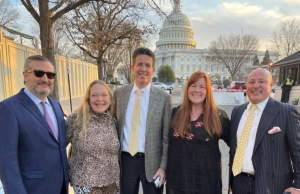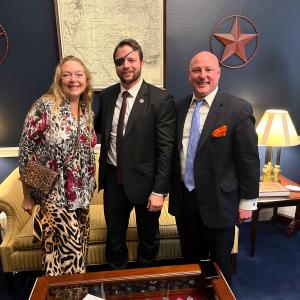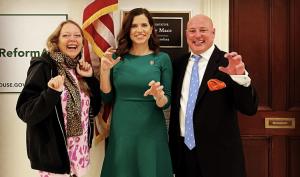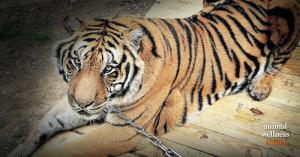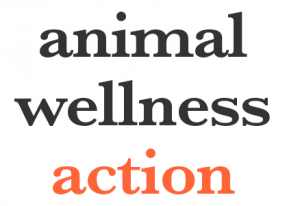U.S. House to Take Up Big Cat Public Safety Act After Menagerie Operators Have Faced a Range of Legal Troubles
It is an enormous expense to care for these animals and reckless behavior foists a massive long-term financial liability on animal sanctuaries.”
WASHINGTON, D.C., UNITED STATES , July 25, 2022 /EINPresswire.com/ -- With the support of the national law enforcement, animal welfare, and conservation and mainstream zoological communities, the U.S. House of Representatives is set to take up the Big Cat Public Safety Act, H.R. 263, this week. Led by Reps. Mike Quigley, D-Ill., and Brian Fitzpatrick, R-Pa., the bill has 259 cosponsors, including about a quarter of the House Republican conference (52 lawmakers).— Carole Baskin
The bill builds on the Captive Wildlife Safety Act, passed unanimously in 2003, that sought to ban the trade in big cats as pets. That original measure had a drafting flaw, and the Big Cat Public Safety Act seeks to correct that problem and to ban breeding big cats for the pet trade or for commercial cub petting.
The bill had been introduced long before the salacious reality television series “Tiger King” but that series put the issue of private ownership of tigers and lions on the American radar screen. NBC’s streaming platform, Peacock TV, also featured the bill in its series “Joe vs. Carole” released in March.
“Chaos and cruelty result when people breed big cats for use as pets or for commercial petting operations,” said Wayne Pacelle, president of the Center for a Humane Economy. “In unanimous fashion 20 years ago, the Congress sought to stop keeping big cats as pets, and now it’s time to finish the job and close loopholes in that law.”
“Breeders who pump out countless big cats for cub-petting are worse than puppy millers, placing unfunded mandates on animal rescues who have to clean up their mess and care for these majestic creatures once they’ve grown too big to exploit,” said Marty Irby executive director at Animal Wellness Action. “We applaud House Leadership for bringing this important measure that will help keep families in suburbia safe from dangerous big cats to a vote before the August recess.”
Captive big cats are not animals that first responders are trained to handle.
“I’ve experienced the worst-case scenario first-hand, and it is a gut-wrenching experience to think about tigers, lions, and other big cats on the prowl in such close proximity to our homes and our schools,” said Sheriff Matt Lutz from Zanesville, Ohio, whose office was forced to respond to mass release of tigers, lions, and other animals in his community more than a decade ago. “Congress should step up and support those of us in law enforcement, who risk our lives every day, and pass the Big Cat Public Safety Act.”
In many cases, after private owners of big cats discard them, it is a network of animal sanctuaries that are asked to house the animals for the remainder of their lives, and it is an enormous expense.
“It is an enormous expense to care for these animals and reckless behavior foists a massive long-term financial liability on animal sanctuaries,” said Carole Baskin, founder of Big Cat Rescue in Tampa, Florida. “None of these private big cat owners holds onto the animals for very long, and that means they get turned over to groups like Big Cat Rescue that have to take in these traumatized, often very unhealthy animals.”
Down from nearly 60 cub-petting operations just 10 or 15 years ago, there are now maybe two or three commercial cub petting outfits in the U.S. Nearly all cub petters featured in “Tiger King” are incarcerated, have had their animals seized, or are facing prosecution.
· Joe Exotic, as everyone knows, is serving 21 years in federal prison for 17 wildlife related charges as well as murder for hire charges.
· Jeff Lowe, who took charge of Joe Exotic’s GW Zoo and intended to open a cub petting operation in far eastern Oklahoma, had his operation raided by federal authorities, who brought civil charges against him. Jeff Lowe’s animals have been confiscated and placed at sanctuaries.
· Tim Stark, another prominent Tiger King “star,” had his animals confiscated by the State of Indiana for multiple animal related and nonprofit operation violations. He fled the State after a criminal charge was filed and was arrested in New York.
· Bhagavan “Doc” Antle was arrested by the on charges of money laundering. He’s also facing charges by the State of Virginia with 15 counts of wildlife trafficking and animal cruelty.
The bill is backed by the National Sheriffs’ Association, state sheriffs’ associations throughout the nation, the Fraternal Order of Police, the National Animal Care and Control Association, and countless other agencies and organizations.
Animal Wellness Action is a Washington, D.C.-based 501(c)(4) organization with a mission of helping animals by promoting legal standards forbidding cruelty. We champion causes that alleviate the suffering of companion animals, farm animals, and wildlife. We advocate for policies to stop dogfighting and cockfighting and other forms of malicious cruelty and to confront factory farming and other systemic forms of animal exploitation. To prevent cruelty, we promote enacting good public policies, and we work to enforce those policies. To enact good laws, we must elect good lawmakers, and that’s why we remind voters which candidates care about our issues and which ones don’t. We believe helping animals helps us all.
The Animal Wellness Foundation (Foundation) is a Los Angeles-based private charitable organization with a mission of helping animals by making veterinary care available to everyone with a pet, regardless of economic ability. We organize rescue efforts and medical services for dogs and cats in need and help homeless pets find a loving caregiver. We are advocates for getting veterinarians to the front lines of the animal welfare movement; promoting responsible pet ownership; and vaccinating animals against infectious diseases such as distemper. We also support policies that prevent animal cruelty and that alleviate suffering. We believe helping animals helps us all.
The Center for a Humane Economy is a non-profit organization that focuses on influencing the conduct of corporations to forge a humane economic order. The first organization of its kind in the animal protection movement, the Center encourages businesses to honor their social responsibilities in a culture where consumers, investors, and other key stakeholders abhor cruelty and the degradation of the environment and embrace innovation as a means of eliminating both.
Marty Irby
Animal Wellness Action
+1 202-821-5686
email us here
Visit us on social media:
Facebook
Twitter
Carole Baskin and Marty Irby on Capitol Hill 3/3/21, World Wildlife Day, Release of Joe vs. Carole
Legal Disclaimer:
EIN Presswire provides this news content "as is" without warranty of any kind. We do not accept any responsibility or liability for the accuracy, content, images, videos, licenses, completeness, legality, or reliability of the information contained in this article. If you have any complaints or copyright issues related to this article, kindly contact the author above.

